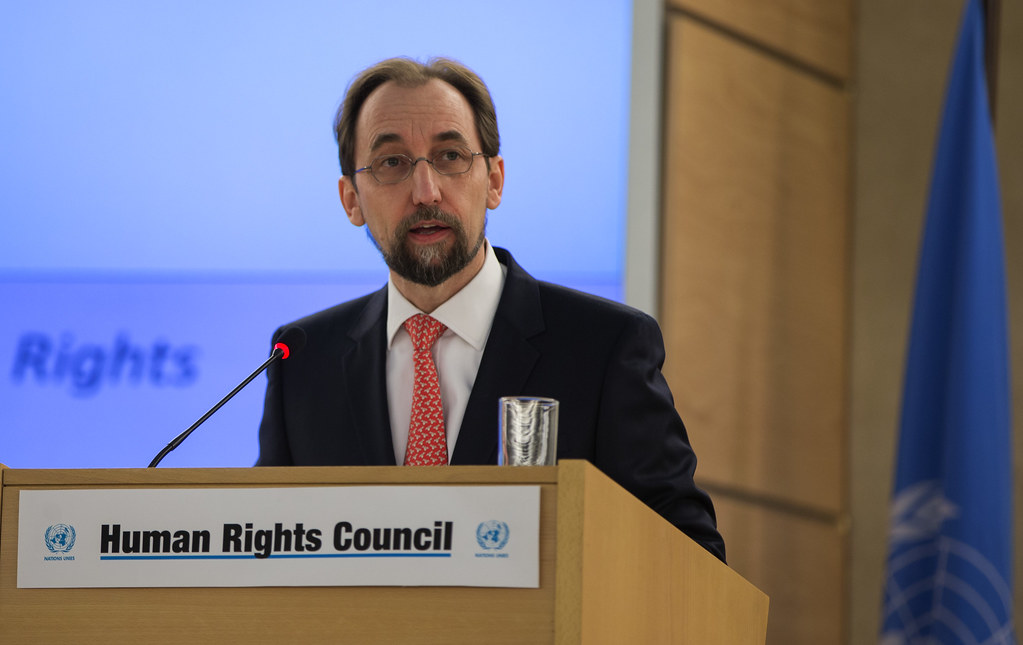Citing the Charlottesville tragedy, the United Nations criticizes the USA for its “failure at the highest political level to unequivocally reject racist violent events.”
The Independent reports that: “The United Nations has criticized Donald Trump for failing to ‘unequivocally and unconditionally reject and condemn racist hate speech and crimes in Charlottesville’ and throughout the US.
While the committee’s statement stopped short of criticizing the US President by name, it said it was calling on the US Government, as well as high-level politicians and public officials, “to address the root causes of the proliferation of such racist manifestations.”
The Guardian adds that “The warning specifically refers to events last week in Charlottesville, Virginia, where the civil rights activist Heather Heyer was killed when a car rammed into a group of people protesting against a white nationalist rally.”
“In the past decade, the only other countries issued with early warnings were Burundi, Iraq, Ivory Coast, Kyrgyzstan and Nigeria,” The Guardian continued.
That committee, the United Nations Committee on the Elimination of Racial Discrimination (CERD), published a press release today stating that they have “called on the Government of the United States of America, as well as high-level politicians and public officials, to unequivocally and unconditionally reject and condemn racist hate speech and crimes in Charlottesville and throughout the country.”
Their official “decision” states that: “there should be no place in the world for racist white supremacist ideas or any similar ideologies that reject the core human rights principles of human dignity and equality.”
“We are alarmed by the racist demonstrations, with overtly racist slogans, chants and salutes by white nationalists, neo-Nazis, and the Ku Klux Klan, promoting white supremacy and inciting racial discrimination and hatred”, said CERD Chairperson Anastasia Crickley.
In addition to the criminal investigation of the individual who ploughed[plowed] his car into a crowd of peaceful protestors killing Ms. Heather Heyer, the UN experts asked the US authorities to undertake concrete measures “to address the root causes of the proliferation of such racist manifestations.”
Continuing, the UN decision called “on the US Government to investigate thoroughly the phenomenon of racial discrimination targeting, in particular, people of African descent, ethnic or ethno-religious minorities, and migrants,” and to “ensure that the rights to freedom of expression, association and peaceful assembly are not exercised with the aim of destroying or denying the rights and freedoms of others. It also asked US to provide the necessary guarantees so that such rights are not misused to promote racist hate speech and racist crimes.”
The Guardian quotes Anastasia Crickley, chair of the committee, as stating that: “We are alarmed by the racist demonstrations, with overtly racist slogans, chants and salutes by white nationalists, neo-Nazis, and the Ku Klux Klan, promoting white supremacy and inciting racial discrimination and hatred.”
Continuing, The Guardian reports that:
Donald Trump faced widespread criticism after he blamed “both sides” for the violence in Charlottesville. Although the CERD statement did not refer to him by name, it called on “the government of the United States of America, as well as high-level politicians and public officials, to unequivocally and unconditionally reject and condemn racist hate speech and crimes in Charlottesville and throughout the country”.
This is not the first time the United Nations has spoken out about Trump. Last October, Politico reported that Zeid Ra’ad al-Hussein, the High Commissioner for Human Rights for the United Nations, told attendees at “a broad-ranging news conference” in Geneva that he considered some of Trump’s remarks to be “deeply unsettling and disturbing,” especially those dealing with torture and “vulnerable communities.”
“If Donald Trump is elected, on the basis of what he has said already and unless that changes, I think it’s without any doubt that he would be dangerous from an international point of view,” he stated.
Speaking of the run-up to the 2016 general election, Zeid, a Jordanian prince, told reporters: “Clearly I am not keen or intent on interfering in any political campaign within any particular country.” Still, he added that he felt he should speak out in the wake of Trump’s calls that suggested he favored a “potential” for an increase in “the use of torture.”


You must be logged in to post a comment Login